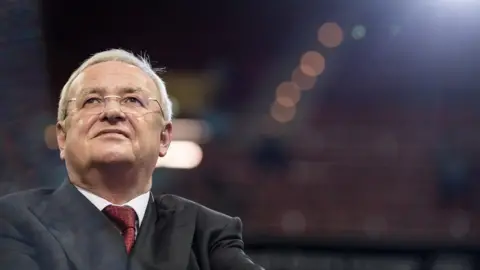Ford in criminal probe over emissions
 Getty Images
Getty ImagesA criminal investigation has been opened into the way Ford tests the emissions of its vehicles.
The US Department of Justice took action after Ford alerted the US Environmental Protection Agency to potential problems in February.
Ford said the issue did not involve the use of defeat devices, which were at the centre of the emissions scandal involving Volkswagen in 2015.
VW was found to have used software that could cheat emissions tests.
Emissions testing in the US has two parts: testing on the road and computer modelling.
The modelling generates mileage and emissions data submitted to regulators.
Ford employees raised concerns about the computer modelling and, in particular, the figures Ford engineers used for road load, which involves the weight of the vehicle and other data.
"We are fully co-operating with all government agencies. Because this matter is still in the preliminary stages, we cannot predict the outcome, and we cannot provide assurance that it will not have a material adverse effect on us," Ford said in a filing with the Securities and Exchange Commission.
Ford has commissioned outside experts to investigate its testing procedure, a process which is expected to last several months.
VW scandal
Regulators have been paying closer attention to emissions testing since the scandal involving Volkswagen emerged in 2015.
VW sold more than 10 million cars between mid-2007 and 2015 that had emissions-test-cheating software installed.
Last year VW was fined €1bn (£880m) by German prosecutors over the scandal and in 2017 agreed to pay $4.3bn (£3.5bn) to settle a US investigation.
Under the deal with the Department of Justice, VW agreed to scrutiny by an independent monitor for three years.
Earlier this month, the former chief executive of VW was charged in Germany over his involvement in the scandal.
 EPA
EPAThe public prosecutor in Braunschweig charged Martin Winterkorn and four other managers with fraud.
Mr Winterkorn is already facing criminal charges in the US, but is unlikely to face trial, as Germany does not extradite its citizens.
The 71-year-old resigned soon after the scandal erupted in September 2015.
In a statement, prosecutors accused Mr Winterkorn of a "particularly serious" fraud, as well as a breach of competition laws.
